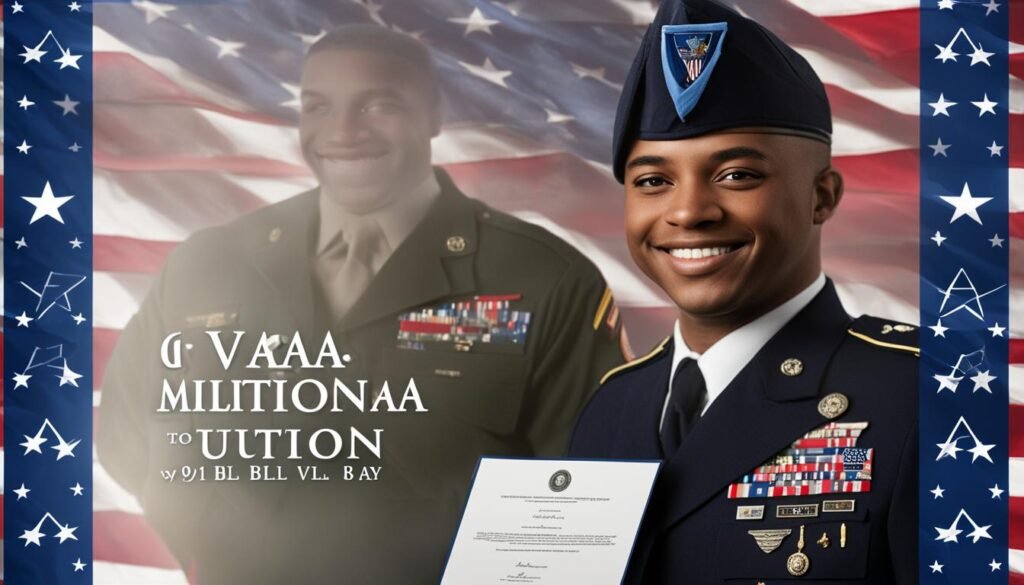Welcome to Section 1 of our article, where we will discuss the GI Bill eligibility criteria for military personnel. The GI Bill offers valuable education benefits for veterans, providing them with the opportunity to pursue further education and training. If you have served in the military and are interested in exploring the benefits available to you, it is important to understand the qualifications and requirements for the GI Bill programs.
There are two main GI Bill programs available for military personnel: the Montgomery GI Bill Active Duty (MGIB-AD) and the Montgomery GI Bill Selected Reserve (MGIB-SR). Each program has specific eligibility criteria that applicants must meet. For MGIB-AD, military personnel must have served at least 2 years on active duty, been honorably discharged, have a high school diploma or equivalent, and meet other requirements. MGIB-SR is available to members of the Army, Navy, Air Force, Marine Corps or Coast Guard Reserves, Army National Guard, or Air National Guard, with a 6-year service obligation or as an officer with additional service obligations.
To determine if you are eligible for the GI Bill programs, it is recommended that you review the specific requirements for each program. The GI Bill provides education benefits for veterans, including funding for tuition, fees, and living expenses while pursuing education or training programs. If you are interested in taking advantage of these benefits, it is important to contact the VA for more information on eligibility criteria and the application process.
Key Takeaways:
- There are two main GI Bill programs available for military personnel: MGIB-AD and MGIB-SR.
- MGIB-AD eligibility criteria include at least 2 years of active duty, honorable discharge, and a high school diploma or equivalent.
- MGIB-SR is available to Reserves and National Guard members with a 6-year service obligation.
- The GI Bill provides education benefits for veterans, including funding for tuition, fees, and living expenses.
- For detailed eligibility information and the application process, contact the VA.
VA Education Benefits for Military Personnel

When it comes to pursuing education or training after military service, the Post-9/11 GI Bill provides valuable benefits to eligible veterans. Understanding the criteria for determining these benefits is essential to make the most of this opportunity.
Determining Eligibility
VA education benefits under the Post-9/11 GI Bill are influenced by several factors. The length of active duty service plays a crucial role, with veterans who served for at least 1,095 days (36 months) eligible for 100% of the benefits. Those with less than 36 months of service may still qualify for a percentage of the full benefit based on their total time served.
In addition to service length, disability status is another significant factor in determining eligibility. Veterans who have a service-connected disability may be eligible for additional benefits through the Post-9/11 GI Bill.
Calculating Benefits
The benefits veterans receive under the Post-9/11 GI Bill are further influenced by the rate of pursuit for education or training. This rate is determined by the number of credits or clock hours the veteran is enrolled in during a specific term.
One of the essential benefits veterans receive is the Monthly Housing Allowance (MHA). Calculated based on factors such as the percentage of benefits the veteran is eligible for, the number of credits or clock hours they are enrolled in, and the location of their campus, the MHA provides financial support for housing expenses while pursuing education or training.
For a comprehensive understanding of the benefits veterans may be eligible for, the VA provides the GI Bill Comparison Tool. This tool allows veterans to calculate their MHA payment and visualize the benefits they can expect to receive based on their unique circumstances.
| Percentage of Benefits | Credits or Clock Hours | Monthly Housing Allowance (MHA) |
|---|---|---|
| 100% (36 months of service) | 12 or more | $2,372 |
| 100% | 9-11 | $1,779 |
| 100% | 6-8 | $1,186 |
| 100% | 1-5 | $593 |
| 80% | 12 or more | $1,898 |
| 80% | 9-11 | $1,424 |
| 80% | 6-8 | $949 |
| 80% | 1-5 | $474 |
These figures provide a glimpse into the potential benefits veterans can receive under the Post-9/11 GI Bill. However, it’s crucial to consult the VA and use the GI Bill Comparison Tool for personalized results and a comprehensive understanding of eligibility criteria and benefits.
By leveraging the VA education benefits available to them, veterans can obtain the necessary funding and support to pursue their educational aspirations. Whether it’s obtaining a degree, acquiring new skills, or transitioning into a new career, the Post-9/11 GI Bill provides valuable assistance to those who have served in the military.
Does GI Bill eligibility criteria for military personnel also apply to their spouse and dependents?
Yes, the GI Bill eligibility criteria for military personnel also apply to their spouse and dependents. This means that they may be able to receive educational benefits under the gi bill spouse and dependents provision. It’s important to check the specific requirements and qualifications for each individual case.
Conclusion
Understanding the requirements and eligibility criteria for the GI Bill programs is crucial for military personnel seeking education benefits. The Montgomery GI Bill programs, which include MGIB-AD and MGIB-SR, offer benefits to veterans who meet specific qualifications.
The Post-9/11 GI Bill benefits are determined based on factors such as the length of active duty service, disability status, and the rate of pursuit for education or training. By considering these factors, veterans can determine the benefits they may be eligible for.
It is important for veterans to consult with the VA to obtain detailed information on eligibility criteria, application processes, and the benefits they can receive. Taking advantage of education benefits through the GI Bill can open doors for military personnel, assisting them in achieving their educational and career objectives.
By leveraging the GI Bill, military personnel can access education benefits that can help them thrive in their post-service lives and make a positive impact in their chosen fields.



